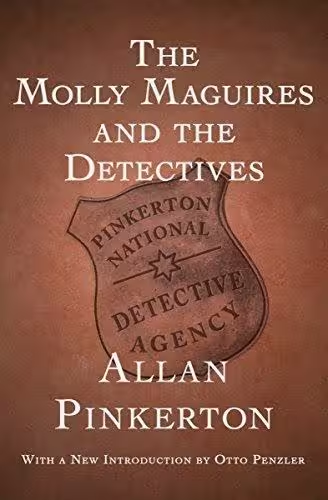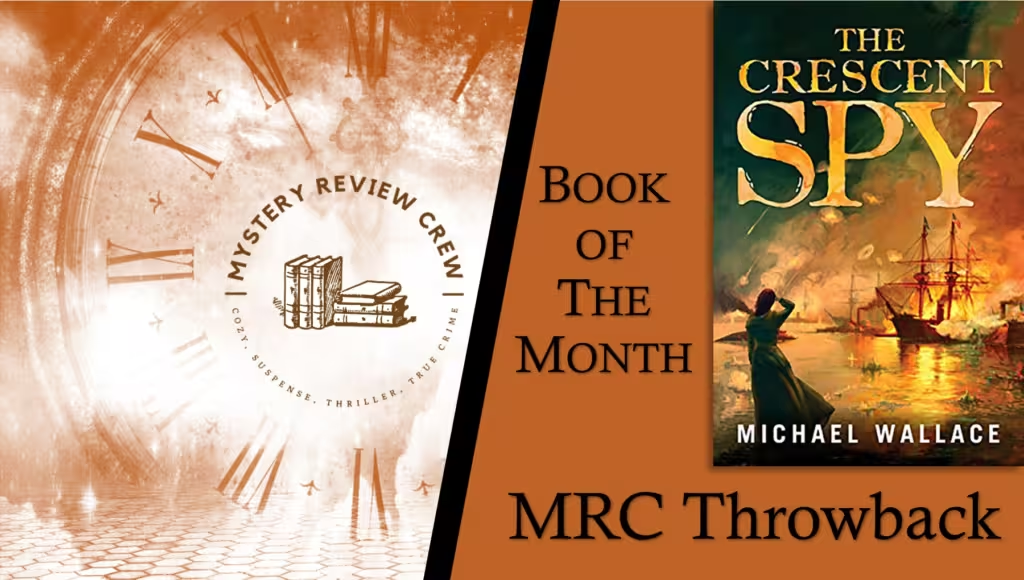Within the realm of mysteries and its many sub-genres, what reader doesn’t like the drama, the intensity, and sometimes, the downright skullduggery of private investigators. Whether a P.I. in the traditional sense or one sliding into the amateur sleuth realm, all is fair game when it comes to ignoring pesky details, such as legalities, to solve the crime. They dare to go where police officers can’t.
Just the mention of a private investigator conjures up the names of famous writers such as Sir Arthur Conan Doyle (Sherlock Holmes), Raymond Chandler (Phillip Marlowe), Dashiell Hammett (Sam Spade), Mickey Spillane (Mike Hammer), Erle Stanley Gardner (Paul Drake-Perry Mason Series), Rex Stout (Nero Wolfe and his sidekick, Archie Goodwin), and Agatha Christie (Hercule Poiret).

With the advent of movies and television, the role of the private investigator has been immortalized. According to multiple accounts, Sherlock Holmes has been portrayed by over 75 actors in 250+ adaptions of the famous character. The list of movies and television shows is endless, from The Maltese Falcon to Magnum PI, Cannon, Barnaby Jones, Mannix, and Murder She Wrote with Angela Lansbury.
Early Private Investigators
As fiction typically mirrors reality, which came first? The real deal or the fictional character. It’s a chicken or egg type of question. In this case, at least in the U.S., it would seem reality led the way. In 1850, Allan J. Pinkerton, dubbed America’s first “private eye,” established the first private investigator detective agency. Sir Arthur Conan Doyle didn’t write the first Sherlock Holmes story until 1877. However, some historians claim it was Edgar Allen Poe who, in 1841, published the first story with a private detective, Monsieur C. Auguste Dupin, in Murders in the Rue Morgue. Others claim the character’s origins began in 1833, when Eugen Francois Vidocq, a French soldier and criminal, founded a private detective agency. He hired ex-convicts.
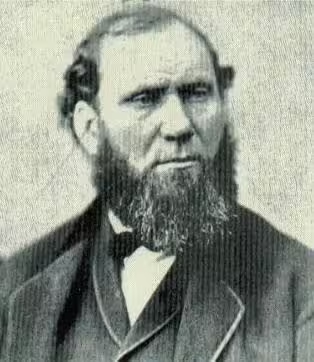
The history of the Pinkerton Detective Agency is a tale more enthralling than any fictional story. Allan J. Pinkerton (1819-1884) was born in Scotland, the son of a police sergeant. Pinkerton became involved in his country’s not-so-popular politics. Forced to flee to avoid imprisonment, he and his wife immigrated to the United States. They settled in Dundee, a small town near Chicago. A barrel maker by trade, a cooper, he started building barrels.
While scouting for wood, he discovered the hideout of a gang of counterfeiters. His efforts to help capture the gang and track down the leader, who had escaped, launched a new career. He became a deputy sheriff in Cook County, then Chicago’s first police detective and a Special Agent for the U.S. Post Office.
Pinkerton initially partnered with a Chicago attorney to create the North-Western Police Agency, which in 1850 became known as the Pinkerton Detective Agency. Pinkerton specialized in railway security, protecting the trains and capturing train robbers. One of his clients, the Illinois Central, employed Abraham Lincoln for legal services.
With the approaching civil war, another railroad client became concerned that secessionists would attempt to destroy the railroad tracks to isolate the nation’s capital. Pinkerton sent agents to infiltrate the secessionist groups in Baltimore, Maryland. One of them was America’s first female private investigator, Kate Warne.
In 1856, Pinkerton was hiring new detectives and had posted an ad. A young woman (1833-1868) applied. Pinkerton reportedly believed Kate Warne had misunderstood the ad. He wasn’t looking for a secretary. She soon disabused him of this idea. Warne convinced Pinkerton to hire her based on her invisibility. It was reported that Warne told Pinkerton, “She could go and worm out secrets in many places to which it was impossible for male detectives to gain access.” Pinkerton’s hiring her proved to be a wise decision.
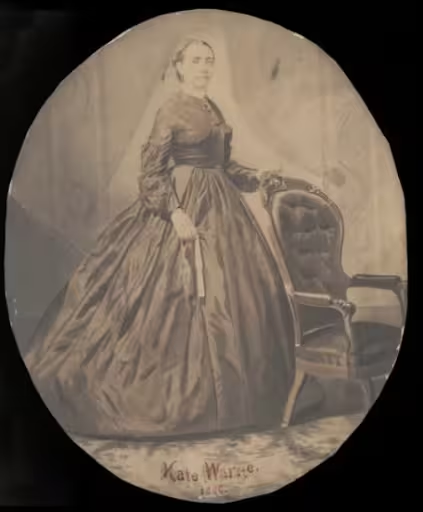
Kate Warne foiled a plot to assassinate President Lincoln days before his inauguration as the President of the United States. In 1861, capitalizing on the prejudice against women, Warne successfully penetrated activist groups supporting the succession of states from the Union. Operating in her undercover persona, a southern woman with an allegiance to the South, she was a frequent visitor to the headquarters for the secessionists. She soon learned of a plot to assassinate Abraham Lincoln on his way to Baltimore for his inauguration as the President of the United States. Warne and Pinkerton convinced Lincoln of the danger, and he agreed to follow their recommendation.
Warne purchased train tickets for Pinkerton, Lincoln, his bodyguard, and herself for the trip from Washington via Baltimore. She pretended to be Lincoln’s caregiver while he wore a disguise and pretended to be her ill brother. Throughout the trip, Warne watched over Lincoln, never sleeping.
It was her vigilance that inspired the slogan for the Pinkerton National Detective Agency—We Never Sleep.

Throughout the war, Pinkerton and his agents continued their undercover activities, providing President Lincoln with intelligence information about the Confederate troop movements.
After the outbreak of the Civil War, Lincoln appointed Pinkerton as head of the Union Army’s secret intelligence division. Pinkerton and his agents continued their undercover activities, providing intelligence information about the Confederate troop movements. Pinkerton undertook many of the missions, posing as a Confederate Army Major.
After the war, Kate Warne was appointed to head a new division, Female Detective Bureau. In 1868, while still employed as an agent for the Pinkerton Detective Agency, she died of pneumonia. It is reported Pinkerton was at her side when she died. She is buried in Pinkerton’s family plot at Graceland Cemetery in Chicago, Illinois.
The Pinkerton Detective Agency paved the way for the future of private investigations. Pinkerton was the first to establish investigative techniques, including undercover surveillance and the infiltration of criminal gangs, which are still used by modern-day P.I.s.
The Pinkerton Detective Agency was the first to establish a Rogues Galley by collecting news articles, mug shots, and police case files for research. By the 1870s, Pinkerton had amassed the world’s criminal database—a forerunner of the criminal library created by the FBI in the early 1900s. In 1860, Pinkerton added another division, Pinkerton’s Preventive Watch, which succeeded in discovering and repressing criminal activity. The Pinkerton Detective Agency was the forerunner for what is known today as the Secret Service.
The agency’s sphere of influence spread to fiction. Dashiell Hammitt, author of the acclaimed Maltese Falcon, was an operative for the Pinkerton Detective Agency in the early 1900s. In a 1929 interview, Hammett stated that he “liked gumshoeing better than anything I had done before” and “sleuthing” even more.” His experiences as a private investigator became the basis of his fictional characters. The Maltese Falcon and The Thin Man were made into films, starring Humphrey Bogart and William Powell.
While the face of a private investigator has changed over the years, enhanced by the current trends in attire and technical ability, what hasn’t changed is the intrigue of a character that has dominated books, movies, and television for decades.
Allan Pinkerton published fifteen detective stories, including The Molly Maguires and the Detectives (New York, 1877), Criminal Reminiscences (1878), The Spy of the Rebellion (1883), and Thirty Years a Detective (1884).
The Molly Maguires and the Detectives by Allan Pinkerton
To keep the peace in the coal mines, the Pinkerton agency goes to war.
The Civil War is over, and the Union is rebuilding using the power of coal—black rock dug from deep beneath the Pennsylvania earth by men from all over the globe who are seeking their fortune in America. In the 1870s, the miners are unionizing to fight for better working conditions, but within their ranks lurks a secret society whose aim is not so pure. It calls itself the Mollie Maguires, and its adherents are ready to kill to get what they want.
Fearing a bloodbath, the head of one of the coal-mining firms reaches out to Allan Pinkerton, founder of the famous detective agency, and begs him to break up the sinister ring. Pinkerton sends James McParlan undercover among the miners, the first soldier in a three-year battle against the radicals that will change the face of American labor forever.
The Expressman and the Detective by Allan Pinkerton
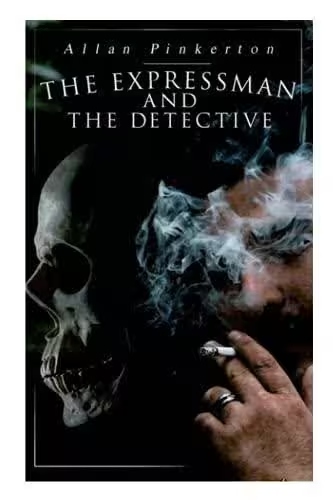
In The Expressman and the Detective Allan Pinkerton tells how his relatively small P.I. firm succeeded in this first big case. Tens of thousands of dollars had gone missing. The suspect was too smart for the police so the robbed company asked Pinkerton to step in. Nine detectives worked this case for ten months. The suspect did take them on a very long chase. Some of the detective travelled miles and miles following the suspect while others followed his wife.
Check out our review of The Crescent Spy, a book about a female Private Investigator.


